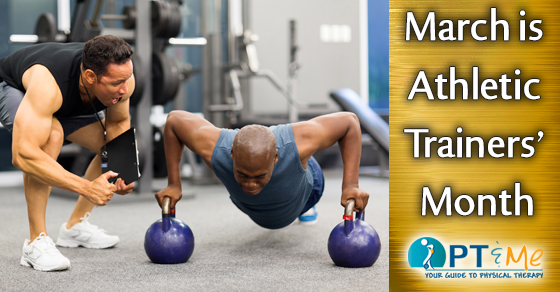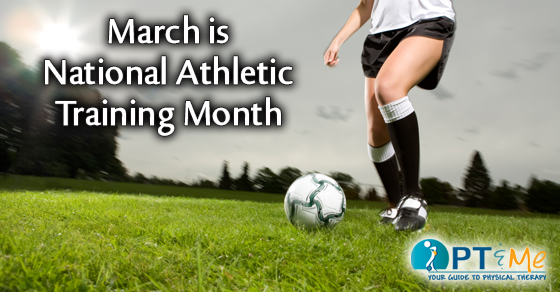
This month, we recognize all athletic trainers and their hard work making everyone look and feel better. Here are some key messages from NATA (National Athletic Trainers’ Association):
ATHLETIC TRAINERS ARE EXPERTS
Working to prevent and treat musculoskeletal injuries and sports-related illnesses, athletic trainers offer a continuum of care unparalleled in health care. ATs are part of a team of health care professionals – they practice under the direction of and in collaboration with physicians. ATs work with those individuals who are physically active or involved in sports participation through all stages of life to prevent, treat and rehabilitate injuries and medical conditions. Athletic trainers should not be confused with personal trainers or “trainers” who focus solely on fitness and conditioning. Always refer to an “athletic trainer” or “AT” to ensure clarify of profession and quality of care.
ATHLETIC TRAINERS SAVE LIVES
Sports injuries can be serious. Brain and spinal cord injuries and conditions such as heat illness can be life threatening if not recognized and properly handled. ATs are there to treat acute injuries on the spot. Athletes have chronic illnesses, too. People with diabetes and asthma can and do safely work and exercise, and the athletic trainer can help manage these critical health issues as they relate to physical exertion.
NOT ALL ATHLETES WEAR JERSEYS
The duties of many workers – such as baggage handlers, dancers, soldiers and police officers – require range of motion and strength and stamina, and hold the potential for musculoskeletal injuries. ATs work with individuals in various settings to help with the prevention and treatment.

THE ATHLETIC TRAINER IS THE HEALTH CARE SYSTEM FOR ATHLETES AND OTHERS
Athletic trainers are on site. They work with patients to avoid injuries; they’re there when injuries happen and they provide immediate care; and they rehabilitate patients after injuries or surgery. It’s a continuum of care. They know their patients well because they are at the school, in the theater or on the factory floor every day.
ATHLETIC TRAINERS TAKE RESPONSIBILITY AND LOWER RISK
School administrators, athletics directors and coaches have their own jobs, which may pose a conflict of interest with athlete safety; they are not experts in managing injuries or sports-related illnesses, nor should they be responsible to do so. Handling injuries at school or at work, rather than sending the patient to the emergency department, saves money and time loss – and gets them back to their activity faster. Just as professional athletes do, recreational athletes should have access to athletic trainers.
For more information please visit: www.nata.org




